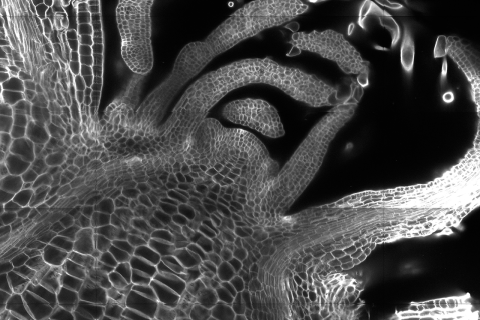Research
Climate change is a major threat to food security. Yields of major crops are already being impacted and are projected to further reduce due to diminishing availability of arable land and freshwater resources and increasingly unstable climatic conditions.
The main mission of the Plant Stress Resilience (PSR) group is gaining a fundamental understanding of plant stress resilience mechanisms during and after stress and comprehension of how environmental fluctuations impact plant growth, plasticity, physiology and development. We study this from the whole-plant to the molecular level. The knowledge we gain through our integrative approaches is crucial in the path towards stress proof crops.

Plant responses to stressful abiotic environments is complex and dynamic. Plant abiotic stress resilience encompasses both transient acclimation and adaptive responses that permit maintenance of plant growth, metabolic function and/or productivity despite unfavorable environmental changes. Understanding these resilience mechanisms requires an insight into stress sensing and signaling pathways and how they impact on plant traits that mediate whole plant survival. In addition, the genetic variation both within and across plant species in adapting to environmental fluctuations can be exploited to determine what makes a plant stress tolerant. While most cultivated plant species are poorly equipped to maintain growth and yield in suboptimal environments, many wild species thrive in extreme environments.
Research at PSR is focused on understanding the molecular basis of plant resilience to both single and multiple climatic stressors in model, cultivated and wild species. We seek to identify genetic loci and molecular targets and pathways that can enhance stress resilience using a combination of phenomics, (epi)genetics, quantitative genetics, genomics, cell biology physiological and molecular biology approaches.

